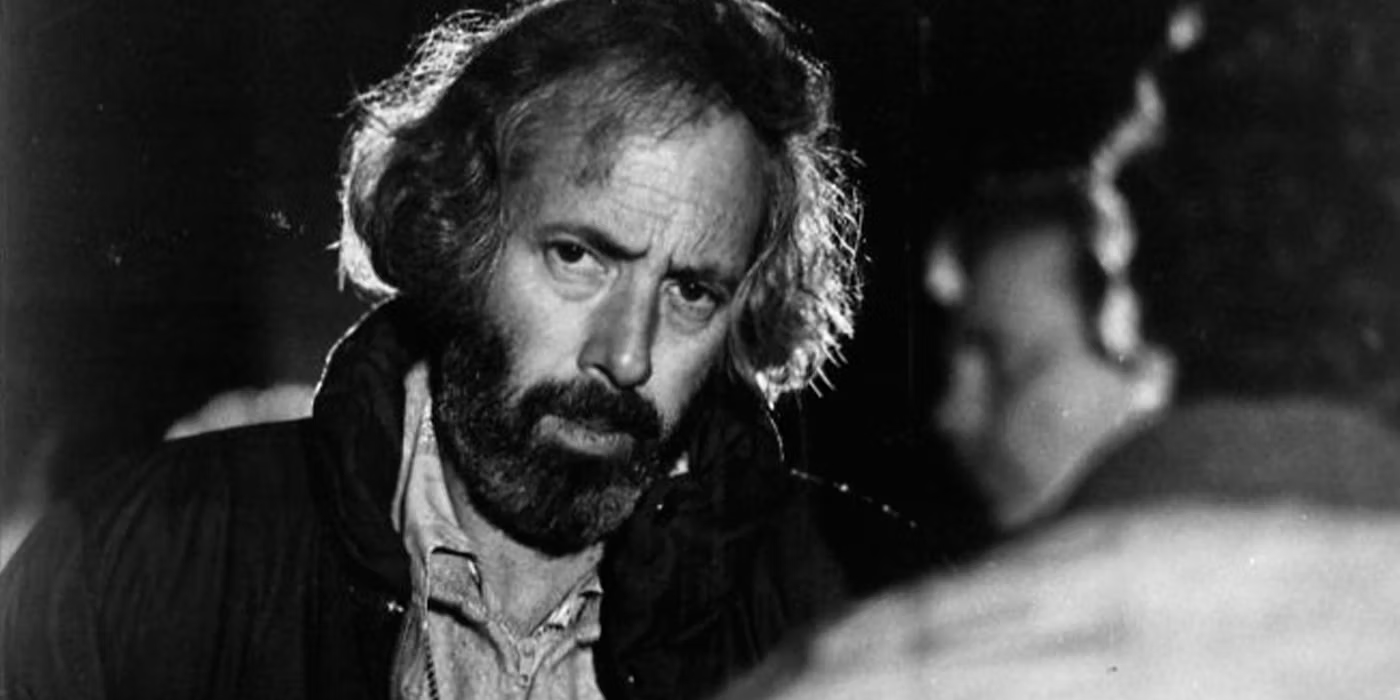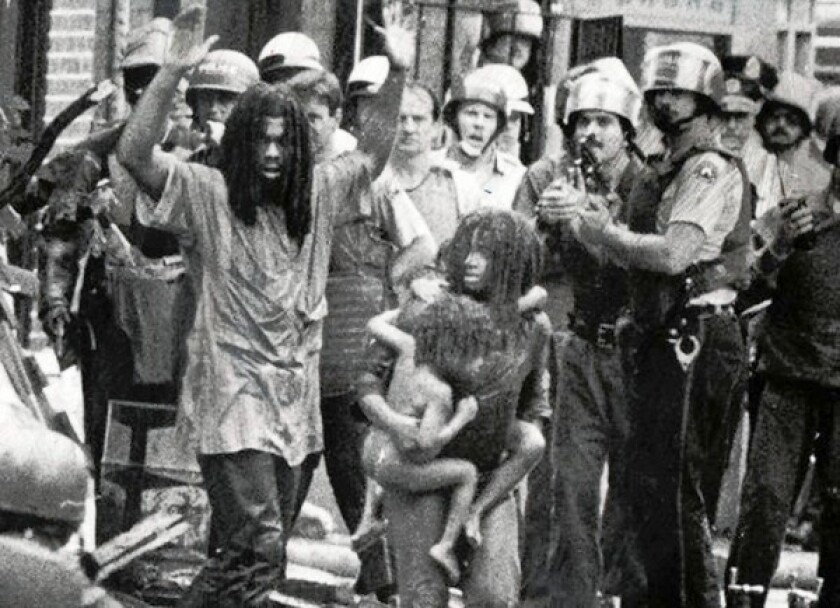By Dennis Hartley
(Originally posted on Digby’s Hullabaloo on July 2, 2024)

You know what they say: “They always come in threes.”
It’s been a rough couple of weeks for film buffs who grew up in the “New Hollywood” era. First, Donald Sutherland. Then Martin Mull. And now, as I’m just learning this evening:
It's an overused phrase, but the death of Robert Towne is truly the end of an era. "Chinatown," "The Last Detail," the great closing "Godfather" scene, he was one of the very best. Just so sad to see him go. https://t.co/710zGRZaPW
— Kenneth Turan (@KennethTuran) July 3, 2024
Shaken to hear that Robert Towne has left us.
His life, like the characters he created, was incisive, iconoclastic, & entirely originally. He gave me the gift of “Shampoo”. He gave all of us the gift of his words & his films. There isn’t another like him. There won’t be again.
— Lee Grant (@TheLeeGrant) July 2, 2024
The gift of his words, indeed. Although, it’s possible that his true gift was gleaning exactly what was better left unsaid. As he once observed: “Good dialogue illuminates what people are not saying.” Quality, not quantity.
A quick refresh on his credits reveals an impressive number of films of note on which he was “uncredited” for his contributions (Drive, He Said, Cisco Pike, The Godfather, The Parallax View, The Missouri Breaks, Marathon Man, et. al.) much less the classics that he is most well-known for.
It’s difficult for me to come up with adequate words to honor such a wordsmith, so I think I’ll follow his sage advice by not getting too flowery. Here are my top recommendations:

The Last Detail – Hal Ashby’s 1973 comedy-drama set the bar pretty high for all “buddy films” to follow (and to this day, few can touch it). Jack Nicholson heads a superb cast, as “Bad-Ass” Buddusky, a career Navy man who is assigned (along with a fellow Shore Patrol officer, played by Otis Young) to escort a first-time offender (Randy Quaid) to the brig in Portsmouth. Chagrined to learn that the hapless young swabbie has been handed an overly-harsh sentence for a relatively petty crime, Buddusky decides that they should at least show “the kid” a good time on his way to the clink (much to his fellow SP’s consternation). Episodic “road movie” misadventures ensue.
Don’t expect a Hollywood-style “wacky” comedy; as he did in all of his films, Ashby keeps it real. The suitably briny dialog was adapted by Robert Towne from Daryl Ponicsan’s novel; and affords Nicholson some of his most iconic line readings (“I AM the motherfucking shore patrol, motherfucker!”). Nicholson and Towne were teamed up again the following year via Roman Polanski’s Chinatown.

Chinatown – There are many Deep Thoughts that I have gleaned over the years via repeated viewings of Roman Polanski’s 1974 “sunshine noir”.
Here are my top 3:
1. Either you bring the water to L.A. or you bring L.A. to the water.
2. Politicians, ugly buildings and whores all get respectable if they last long enough.
3. You may think you know what you’re dealing with, but, believe me, you don’t.
Of course, I’ve also learned that if you put together a great director (Polanski), a killer screenplay (by Robert Towne), two lead actors at the top of their game (Jack Nicholson and Faye Dunaway), an ace cinematographer (John A. Alonzo) and top it off with a perfect music score (by Jerry Goldsmith), you’ll likely produce a film that deserves to be called a “classic”, in every sense of the word.

The Parallax View – Alan J. Pakula’s 1974 “conspiracy a-go-go” thriller stars Warren Beatty, who delivers an excellent performance as a maverick print journalist investigating a suspicious string of untimely demises that befall witnesses to a U.S. senator’s assassination in a restaurant atop the Space Needle. This puts him on a trail that leads to an enigmatic agency called the Parallax Corporation.
The supporting cast includes Hume Cronyn, William Daniels and Paula Prentiss. Nice work by cinematographer Gordon Willis (aka “the prince of darkness”), who sustains the foreboding, claustrophobic mood of the piece with his masterful use of light and shadow.
The screenplay is by David Giler and Lorenzo Semple Jr. (based on the 1970 novel by Loren Singer, with a non-credited rewrite by Robert Towne). The narrative contains obvious allusions to the JFK assassination, and (in retrospect) reflects the political paranoia of the Nixon era (perhaps this was serendipity, as the full implications of the Watergate scandal were not yet in the rear view mirror while the film was in production).

The Yakuza – Robert Mitchum and Ken Takakura are excellent in this complex culture clash/gangster drama. DIrector Sidney Pollack had major writing talent on board-Robert Towne and Paul Schrader (who scripted from a story idea by Schrader’s brother Leonard).

Shampoo – Sex, politics, and the shallow SoCal lifestyle are mercilessly skewered in Hal Ashby’s classic 1975 satire. Warren Beatty (who co-scripted with Robert Towne) plays a restless, over-sexed hairdresser with commitment issues regarding the three major women in his life (excellent performances from Lee Grant, Goldie Hawn and Julie Christie).
Beatty allegedly based his character of “George” on his close friend, celebrity hairdresser Jay Sebring (one of the victims of the infamous 1969 Tate-LaBianca slayings).
This was one of the first films to satirize the 1960s zeitgeist with some degree of historical detachment. The late great cinematographer Laszlo Kovacs infuses the L.A. backdrop with a gauziness that appropriately mirrors the protagonist’s fuzzy way of dealing with adult responsibilities.

Personal Best – When this film was released, there was so much ado over brief love scenes between Mariel Hemingway and co-star Patrice Donnelly that many failed to notice that it was one of the most realistic, empowering portrayals of female athletes to date. Writer-director Robert Towne did his homework; he spent time observing Olympic track stars at work and play. The women are shown to be just as tough and competitive as their male counterparts; Hemingway and (real-life pentathlete) Donnelly give fearless performances. Scott Glenn is excellent as a hard-driving coach.

Tough Guys Don’t Dance – If “offbeat noir” is your thing, this is your kind of film. Ryan O’Neal plays an inscrutable ex-con with a conniving “black widow” of a wife, who experiences five “really bad days” in a row, involving drugs, blackmail and murder. Due to temporary amnesia, however, he’s not sure of his own complicity (O’Neal begins each day by writing the date on his bathroom mirror with shaving cream-keep in mind, this film precedes Memento by 13 years.)
Noir icon Lawrence Tierny (cast here 5 years before Tarantino tapped him for Reservoir Dogs) is priceless as O’Neal’s estranged father, who is helping him sort out events (it’s worth the price of admission when Tierny barks “I just deep-sixed two heads!”).
Equally notable is a deliciously demented performance by B-movie trouper Wings Hauser as the hilariously named Captain Alvin Luther Regency. Norman Mailer’s “lack” of direction has been duly noted over the years, but his minimalist style works. While he was not credited, Robert Towne contributed to the script. The film has a David Lynch vibe at times (which could be due to the fact that Isabella Rossellini co-stars, and the soundtrack was composed by Lynch stalwart Angelo Badalamenti).
Also recommended:
Greystoke: The Legend of Tarzan, Lord of the Apes (under a pseudonym)
The Two Jakes
The Firm
Tequila Sunrise (also directed)
Without Limits (also directed)
One more thing…
Towne may not have written the entire screenplay, but the scene he contributed to The Godfather is unforgettable and infinitely quotable:


















